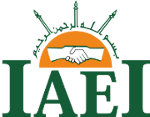Implementation of Qanun Baitul Mal on Zakat On Agriculture and Plantations in the Southwest of Aceh
DOI:
https://doi.org/10.47498/tasyri.v17i1.4643Keywords:
Implementation, Qanun, Agricultural ZakatAbstract
This research aims to explain the implementation of Qanun Baitul Mal No. 11 of 2018 in the Barat-Selatan Aceh (Barsela) region. The focus of the study is the application of Qanun Baitul Mal No. 11 of 2018 concerning the obligation to pay zakat from all agricultural and plantation yields, along with the influencing factors. The research was conducted in three regencies: Aceh Barat, Nagan Raya, and Abdya, using a qualitative descriptive method. Data collection techniques included in-depth interviews, observation, and literature review, which were then analyzed using legislative theory and the maqasid al-shari’ah approach. This study found that Barsela is a region with significant potential in agriculture and plantations, especially oil palm. However, public awareness to pay zakat from all agricultural and plantation yields in accordance with the provisions of the qanun remains very low. In general, the implementation of zakat is left to the understanding of the madhhab, without considering the logical reasoning (‘illat) and the objectives (maqasid al-shari’ah) behind the zakat obligation. As a result, zakat paid from agricultural and plantation yields is limited to staple food, in accordance with the provisions of the Shafi‘i madhhab. The contributing factors include a strong cultural attachment to the Shafi‘i madhhab, insufficient structural and functional support from related institutions, and a low level of understanding among stakeholders regarding the status and function of the qanun in the implementation of Islamic law (shari‘ah) in Aceh and its position within the legislative hierarchy.
Downloads
References
Abdul Ghofur Ansori. (2006). Hukum Dan Pemberdayaan Zakat: Upaya Sinergis Wajib Zakat dan Pajak Indonesia, (Cet, I). Nuansa Aksra.
Abubakar, A. (2019). Hukum Jinayat (1st ed.).
Agustino, L. (2008). Dasar-Dasar Kebijakan Publik. Alfabeta.
Al-Zuhayli, W. (n.d.). Al-Fiqh al-Islami wa Adillatuhu: Vol. III. Dar al-Kutub al-’Ilmiyyah.
Anwar, N. (2022). Manajemen Zakat. Penerbit Lindan Bestari.
Dahlawi, D. (2019). IMPLEMENTASI ZAKAT SEBAGAI PENDAPATAN ASLI DAERAH. Al-Ijtima`i: International Journal of Government and Social Science, 5(1). https://doi.org/10.22373/jai.v5i1.463
Herawati Ayu Ningsih, & Nurul Fitriah. (2022). Pemahaman Petani Padi Tentang Zakat Pertanian di Desa Ganrang Batu, Kabupaten Jeneponto. Al-Ubudiyah: Jurnal Pendidikan Dan Studi Islam, 3(1). https://doi.org/10.55623/au.v3i1.48
Jamal, A. (2023). ILMU MAQASID AL-SYARI’AH (1st ed.). Lhee Sagoe Press.
M. Aditya Ananda. (2020). IMPLEMENTASI QANUN LKS MELALUI SINERGI PERBANKAN DALAM SATU KEPEMILIKAN. AT-TASYRI’: JURNAL ILMIAH PRODI MUAMALAH. https://doi.org/10.47498/tasyri.v12i2.377
Ma’ruf, J. J. (2013, July 22). Membangun ‘Barsela.’ Serambinews.Com. https://aceh.tribunnews.com/2013/07/22/membangun-barsela
Muhyiddin Yahya, A. Z. (1431). Al-Majmu Syarh al-Muhadzdzab: Vol. Juz V. Dar al-Fikr.
Musrafiyan. (2022). POTENSI PEMBANGUNAN KAWASAN EKONOMI KHUSUS (KEK) HALAL BARSELA SEBAGAI DESTINASI PARIWISATA PRIORITAS DI ERA SOCIETY 5.0. Proceedings of International Conference on Islamic Studies “Islam & Sustainable Development” , 1(1), 488–501.
N, N. (2019). Analisis ‘Uqubah terhadap Muzakki yang Tidak Membayar Zakat Melalui Baitul Mal. REUSAM: Jurnal Ilmu Hukum, 7(2). https://doi.org/10.29103/reusam.v7i2.2247
Praja, S. J., & Ulfa, W. (2020). IMPLEMENTASI QANUN NOMOR 6 TAHUN 2014 TENTANG HUKUM JINAYAT DI KOTA BANDA ACEH PROVINSI ACEH. Jurnal Kebijakan Pemerintahan. https://doi.org/10.33701/jkp.v3i1.1071
Qodariah Barkah, Et. al,. (2020). Fikih Zakat, Sedekah dan Wakaf. Kencana.
Qudamah, I. (1431). Al-Mughni: Vol. II (T. Zayni, Ed.). Maktabah Qahirah.
Rina, R., & Syuhada, S. (2017). Dakwah Ulama Tentang Zakat Pertanian Di Kecamatan Anjir Pasar Kabupaten Barito Kuala. Al-Hiwar : Jurnal Ilmu Dan Teknik Dakwah, 1(1). https://doi.org/10.18592/al-hiwar.v1i1.1188
Septiawan, H., & Bahri, E. S. (2019). Tinjauan Zakat Perusahaan Perspektif Syariah Dan Regulasi. Kordinat: Jurnal Komunikasi Antar Perguruan Tinggi Agama Islam, 18(2). https://doi.org/10.15408/kordinat.v18i2.11495
Syarbayni, K. (1993). Mughni al-Muhtaj: Vol. II. Dar al-Kutub al-’Ilmiyyah.
Utiah, S. A., Damopolii, A., & Kamaru, F. F. (2022). Pemahaman Petani Cengkeh Terhadap Zakat Pertanian di Desa Sapa Timur Kecamatan Tenga. Al-’Aqdu: Journal of Islamic Economics Law, 2(1). https://doi.org/10.30984/ajiel.v2i1.1992
Yuli Hauliatin Nahdlah. (2021). IMPLEMENTASI ZAKAT HASIL PERTANIAN DALAM PERSPEKTIF HUKUM ISLAM (STUDI DI DESA ANJANI KECAMATAN SURALAGA KABUPATEN LOMBOK TIMUR). Al-Watsiqah : Jurnal Hukum Ekonomi Syari’ah, 12(01). https://doi.org/10.51806/al-watsiqah.v12i01.5
Downloads
Published
Issue
Section
License
- Hak publikasi atas semua materi informasi yang tercantum dalam situs jurnal ini dipegang oleh dewan redaksi/editor dengan sepengetahuan penulis. Pengelola Jurnal akan menjunjung tinggi hak moral penulis.
- Aspek legal formal terhadap akses setiap informasi dan artikel yang tercantum dalam situs jurnal ini mengacu pada ketentuan lisensi Creative Commons Atribusi-Non Commercial-No Derivative (CC BY-NC-ND), yang berarti bahwa hanya dengan izin penulis, informasi dan artikel Jurnal AT-TASYRI' dapat didistribusikan ke pihak lain dengan tanpa merubah bentuk aslinya untuk tujuan non-komersial.
- Setiap terbitan Jurnal AT-TASYRI', baik cetak maupun elektronik, bersifat open access untuk tujuan pendidikan, penelitian, dan perpustakaan. Di luar tujuan tersebut, penerbit atau pengelola jurnal tidak bertanggung jawab atas terjadinya pelanggaran hak cipta yang dilakukan oleh pembaca atau pengakses.





